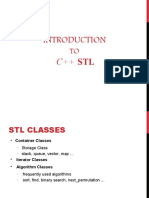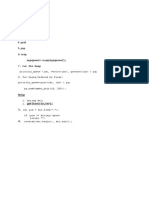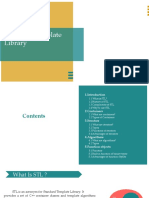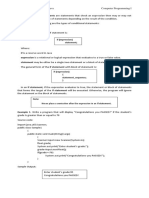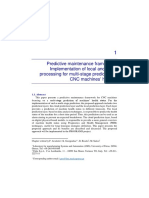0% found this document useful (0 votes)
13 views12 pagesSTL in C++
This document is a comprehensive C++ STL Cheat Sheet that covers commonly used STL containers such as vector, string, map, and set, along with their important functions and usage scenarios. It also provides insights into the internal implementation of these containers and includes quick tips for selecting the appropriate STL for various programming tasks. Additionally, it discusses function objects in C++, including predefined functors for comparisons and arithmetic operations.
Uploaded by
Raghu NandanCopyright
© © All Rights Reserved
We take content rights seriously. If you suspect this is your content, claim it here.
Available Formats
Download as DOCX, PDF, TXT or read online on Scribd
0% found this document useful (0 votes)
13 views12 pagesSTL in C++
This document is a comprehensive C++ STL Cheat Sheet that covers commonly used STL containers such as vector, string, map, and set, along with their important functions and usage scenarios. It also provides insights into the internal implementation of these containers and includes quick tips for selecting the appropriate STL for various programming tasks. Additionally, it discusses function objects in C++, including predefined functors for comparisons and arithmetic operations.
Uploaded by
Raghu NandanCopyright
© © All Rights Reserved
We take content rights seriously. If you suspect this is your content, claim it here.
Available Formats
Download as DOCX, PDF, TXT or read online on Scribd
/ 12








